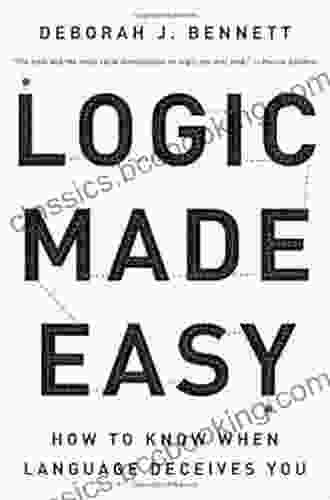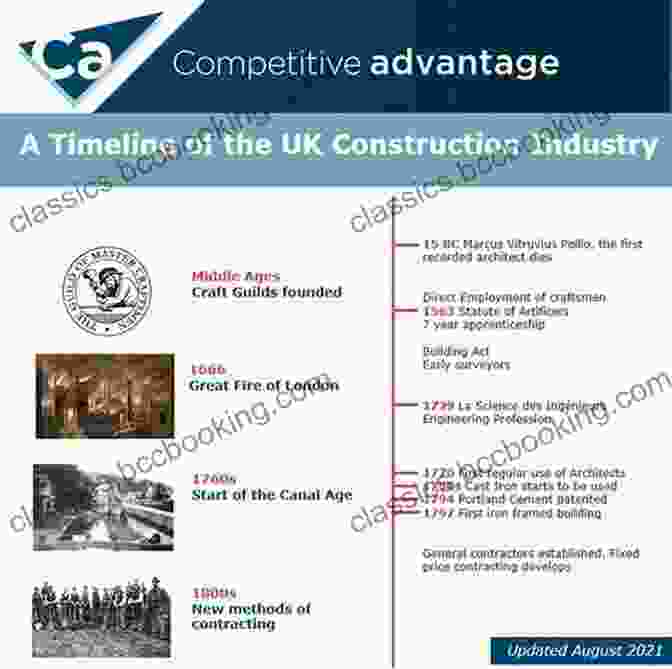An Account Of The UK Construction Industry Reform Movement 1993 2003 Routledge

5 out of 5
| Language | : | English |
| File size | : | 2569 KB |
| Text-to-Speech | : | Enabled |
| Screen Reader | : | Supported |
| Enhanced typesetting | : | Enabled |
| Word Wise | : | Enabled |
| Print length | : | 180 pages |
The UK construction industry has undergone a significant transformation over the past few decades, driven by a series of reform initiatives aimed at improving efficiency, quality, and sustainability. The Construction Industry Reform Movement (CIRM),which spanned the period from 1993 to 2003, played a pivotal role in shaping the industry's current landscape. This article, based on the comprehensive book "An Account of the UK Construction Industry Reform Movement 1993-2003" by Routledge, provides an in-depth exploration of this transformative era, examining its key drivers, initiatives, and outcomes.
The Genesis of CIRM
The CIRM emerged in response to a number of challenges facing the UK construction industry in the early 1990s. These included low productivity, poor quality, fragmented supply chains, and a lack of innovation. The industry was also perceived as being adversarial and inefficient, with a poor safety record. In 1993, the government commissioned a report by Sir John Egan, which became known as the Egan Report, to identify the root causes of these problems and propose solutions.
The Egan Report and Its Impact
The Egan Report, published in 1998, was a watershed moment for the UK construction industry. It set out a vision for a more efficient, sustainable, and collaborative industry, based on the following five key principles:
- Rethinking Construction: The industry needed to adopt a more holistic approach to project delivery, considering the entire lifecycle of a building from design to demolition.
- Focusing on the Customer: The needs of the client should be at the heart of all construction projects.
- Integrating the Supply Chain: Collaboration and communication between all parties involved in a project is essential for success.
- Investing in People: The industry must invest in training and development to ensure that it has a skilled and knowledgeable workforce.
- Using Technology: Technology can play a vital role in improving efficiency and productivity.
The Egan Report had a profound impact on the UK construction industry. It led to the establishment of a number of new initiatives, including Constructing Excellence, which was tasked with promoting best practice and innovation. It also helped to raise awareness of the importance of sustainability and modern methods of construction.
The Latham Report and Other Initiatives
In addition to the Egan Report, a number of other initiatives were launched during the CIRM period. These included the Latham Report, which focused on reforming the procurement process, and the Construction Best Practice Programme, which provided guidance on how to implement best practice on construction projects.
These initiatives, together with the Egan Report, helped to create a momentum for change within the UK construction industry. They led to a number of positive developments, including improved productivity, reduced costs, and a greater focus on quality and sustainability.
Outcomes of the CIRM
The CIRM was a period of significant change for the UK construction industry. The initiatives that were launched during this period helped to create a more efficient, sustainable, and collaborative industry. Some of the key outcomes of the CIRM include:
- Improved productivity: The UK construction industry has seen a significant increase in productivity over the past two decades. This is due in part to the adoption of new technologies and modern methods of construction.
- Reduced costs: The cost of construction projects has fallen in real terms over the past two decades. This is due in part to the improved efficiency of the industry.
- Greater focus on quality: The industry has placed a greater focus on quality in recent years. This is due in part to the of new quality standards and the growing awareness of the importance of sustainability.
- Increased collaboration: The industry has become more collaborative in recent years. This is due in part to the establishment of new collaborative frameworks and the growing use of technology to facilitate communication and information sharing.
The CIRM was a watershed moment for the UK construction industry. The initiatives that were launched during this period helped to create a more efficient, sustainable, and collaborative industry. The lessons learned from the CIRM are still relevant today, and they continue to inform the way that construction projects are delivered in the UK.
About the Book
"An Account of the UK Construction Industry Reform Movement 1993-2003" by Routledge provides a comprehensive overview of the CIRM. The book draws on a wealth of research and interviews to provide a detailed account of the key drivers, initiatives, and outcomes of this transformative period. It is an essential resource for anyone who wants to understand the evolution of the UK construction industry.
Image Alt Attributes
5 out of 5
| Language | : | English |
| File size | : | 2569 KB |
| Text-to-Speech | : | Enabled |
| Screen Reader | : | Supported |
| Enhanced typesetting | : | Enabled |
| Word Wise | : | Enabled |
| Print length | : | 180 pages |
Do you want to contribute by writing guest posts on this blog?
Please contact us and send us a resume of previous articles that you have written.
 Book
Book Novel
Novel Page
Page Chapter
Chapter Text
Text Story
Story Genre
Genre Reader
Reader Library
Library Paperback
Paperback E-book
E-book Magazine
Magazine Newspaper
Newspaper Paragraph
Paragraph Sentence
Sentence Bookmark
Bookmark Shelf
Shelf Glossary
Glossary Bibliography
Bibliography Foreword
Foreword Preface
Preface Synopsis
Synopsis Annotation
Annotation Footnote
Footnote Manuscript
Manuscript Scroll
Scroll Codex
Codex Tome
Tome Bestseller
Bestseller Classics
Classics Library card
Library card Narrative
Narrative Biography
Biography Autobiography
Autobiography Memoir
Memoir Reference
Reference Encyclopedia
Encyclopedia Dean Littlepage
Dean Littlepage David Putnam
David Putnam Dave Stockton
Dave Stockton David Borsa
David Borsa Deborah Alcock
Deborah Alcock David Pagano
David Pagano Dawn M Mcbride
Dawn M Mcbride Daniel S Lobel Phd
Daniel S Lobel Phd Deanna Chesley
Deanna Chesley Daphne Benedis Grab
Daphne Benedis Grab David C Tucker
David C Tucker David James Ault
David James Ault David Groves
David Groves David Benjamin
David Benjamin Dean King
Dean King Danielle Walker
Danielle Walker David W Orr
David W Orr David Baldacci
David Baldacci David Salomon
David Salomon Danielle A Dahl
Danielle A Dahl
Light bulbAdvertise smarter! Our strategic ad space ensures maximum exposure. Reserve your spot today!

 Jorge Luis BorgesECOWAS Law: A Comprehensive Guide to the Legal Framework of West Africa's...
Jorge Luis BorgesECOWAS Law: A Comprehensive Guide to the Legal Framework of West Africa's... Eddie PowellFollow ·4.5k
Eddie PowellFollow ·4.5k Terry PratchettFollow ·7.2k
Terry PratchettFollow ·7.2k Floyd PowellFollow ·6.8k
Floyd PowellFollow ·6.8k George R.R. MartinFollow ·15k
George R.R. MartinFollow ·15k Theodore MitchellFollow ·13.4k
Theodore MitchellFollow ·13.4k Julian PowellFollow ·17.6k
Julian PowellFollow ·17.6k Theo CoxFollow ·19.5k
Theo CoxFollow ·19.5k Henry JamesFollow ·17.6k
Henry JamesFollow ·17.6k

 Cameron Reed
Cameron ReedHow to Know When Language Deceives You
Unmasking the Power of...

 Robbie Carter
Robbie Carter50 Things To Know About Planning Home Schooling...
: The Power of Hands-On Learning Embarking...

 Julio Cortázar
Julio CortázarCalculus: Single and Multivariable, 8th Edition — The...
Calculus is the...

 Jaime Mitchell
Jaime MitchellBunnicula and Friends: A Spooktacular Tale of Mystery and...
In the quaint little town of Celeryville,...

 Josh Carter
Josh CarterPeppa Easter Egg Hunt: Join Peppa Pig on an...
Get ready for...

 Donovan Carter
Donovan CarterBoy Called Dickens: A Journey into the Childhood of a...
Delving into the...
5 out of 5
| Language | : | English |
| File size | : | 2569 KB |
| Text-to-Speech | : | Enabled |
| Screen Reader | : | Supported |
| Enhanced typesetting | : | Enabled |
| Word Wise | : | Enabled |
| Print length | : | 180 pages |













